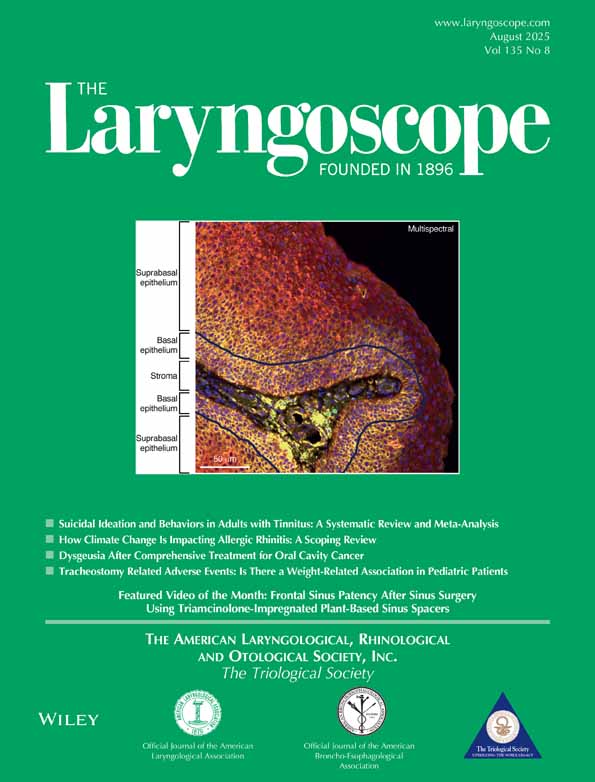Identification of Viruses in Patients With Postviral Olfactory Dysfunction
Abstract
Objective: Causative viruses of postviral olfactory dysfunction (PVOD) have not yet been identified. The aim of this study was to investigate causative viruses in patients with PVOD.
Study Design and Methods: Nasal discharge was collected from 24 patients with PVOD. We investigated the presence of 10 viruses in nasal discharge and examined the time course, with regard to changes in olfactory dysfunction and nasal obstruction in patients with PVOD, using questionnaires, acoustic rhinometry, and olfactory tests.
Results: Rhinoviruses were detected in 10 patients by electrophoresis. Rhinoviruses were also confirmed in four patients by nucleotide sequences. Viral serotypes were identified to be human rhinovirus (HRV)-40, HRV-75, HRV-78, and HRV-80. One of the four patients complained of anosmia, whereas another complained of dysosmia. Olfactory testing did not show significant improvement at 4, 8, 11, and 24 weeks after the first visit in the four patients, although results of acoustic rhinometry significantly improved. Two of the four patients complained of olfactory dysfunction even 6 months after the first visit. Coronavirus and parainfluenza virus were detected in one patient each, and Epstein-Barr viruses were detected in three patients.
Conclusions: This study for the first time detected rhinovirus, coronavirus, parainfluenza virus, and Epstein-Barr virus in nasal discharge of patients with PVOD. Furthermore, the present study suggests that rhinoviruses can cause olfactory dysfunction through mechanisms other than nasal obstruction and that rhinoviruses can induce various severities and different time courses of olfactory dysfunction.




